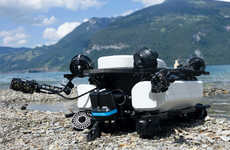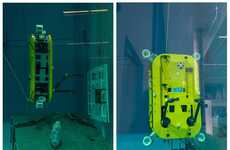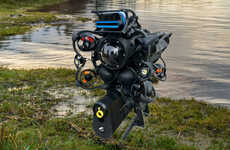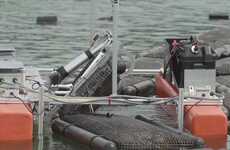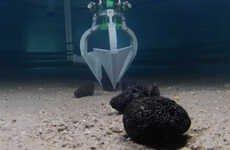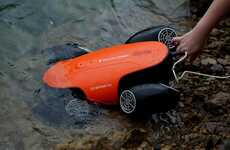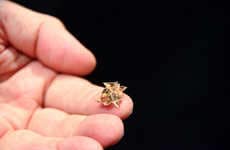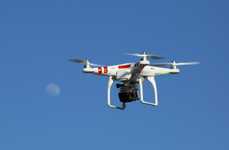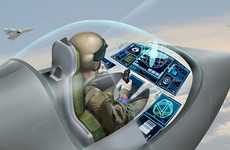
These Underwater Robots Will Help Scientists Monitor the Indian Ocean
Katherine Pendrill — July 1, 2015 — Tech
'CSIRO' is set to deploy a series of underwater robots that will help scientists better understand the physical and biological state of the Indian Ocean. The futuristic bio-robots are called 'BioArgos' and they will be deployed between Christmas Island and the coast of Madagascar. These robots are of particular importance because the Indian Ocean is one of the most under-sampled parts of the world.
The underwater robots are each equipped with a number of tiny sensors that will help them measure important biological indicators within the ocean such as nitrate, chlorophyll, dissolved oxygen, organic matter and particles. These indicators provide scientists with information on how much food the ocean is producing, as well as how much carbon dioxide it is capable of capturing. By measuring the biological and physical characteristics of the water, scientists can better understand the overall health of the Indian Ocean.
The underwater robots are each equipped with a number of tiny sensors that will help them measure important biological indicators within the ocean such as nitrate, chlorophyll, dissolved oxygen, organic matter and particles. These indicators provide scientists with information on how much food the ocean is producing, as well as how much carbon dioxide it is capable of capturing. By measuring the biological and physical characteristics of the water, scientists can better understand the overall health of the Indian Ocean.
Trend Themes
1. Underwater Robotics - Underwater robots have the potential to revolutionize ocean monitoring by providing more detailed data on the physical and biological state of the ocean, opening up opportunities for new applications and business models
2. Bio-mimicking Robots - The use of bio-mimicking robots, which mimic the appearance and movements of aquatic creatures, can lead to more efficient and cost-effective ocean monitoring through improved mobility and longer deployment times
3. Artificial Intelligence in Ocean Monitoring - The integration of AI technology in underwater robots can enhance the accuracy, speed, and interpretability of data collection, analysis, and decision-making in ocean monitoring on a global scale
Industry Implications
1. Oceanographic Research - Underwater robots can provide new opportunities for oceanographic research by enabling more comprehensive and accurate data collection on the physical and biological state of the ocean
2. Environmental Monitoring - Underwater robots can enhance the monitoring of environmental indicators, such as water quality, temperature, and pollution, in oceans and other large bodies of water, providing more accurate and real-time data for governance and policy-making purposes
3. Aquaculture and Fisheries - The use of underwater robots can help optimize the efficiency and sustainability of aquaculture and fishery operations by monitoring water quality and fish behavior, detecting diseases, and identifying potential threats to production
1
Score
Popularity
Activity
Freshness

